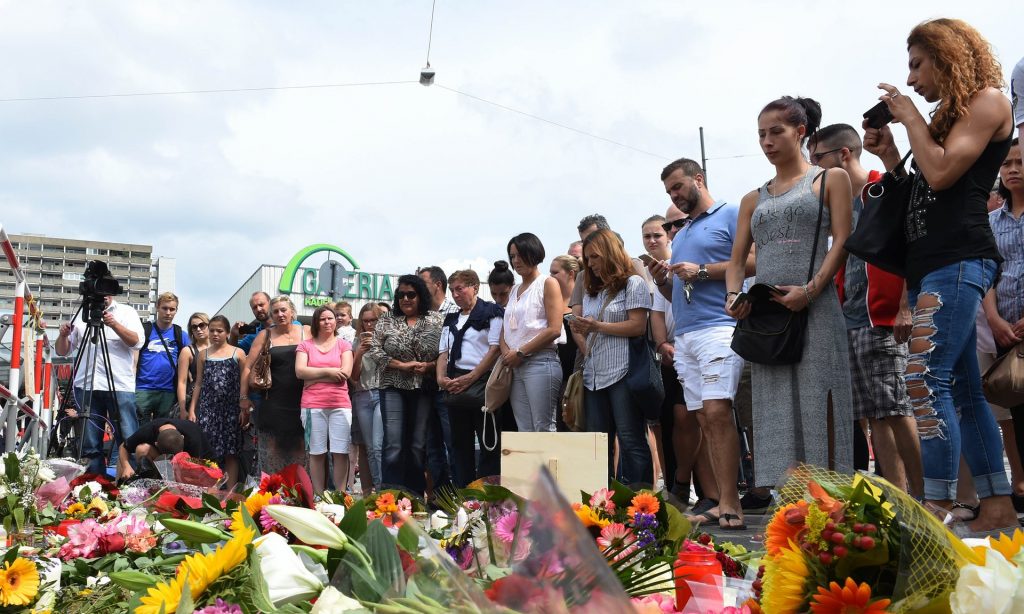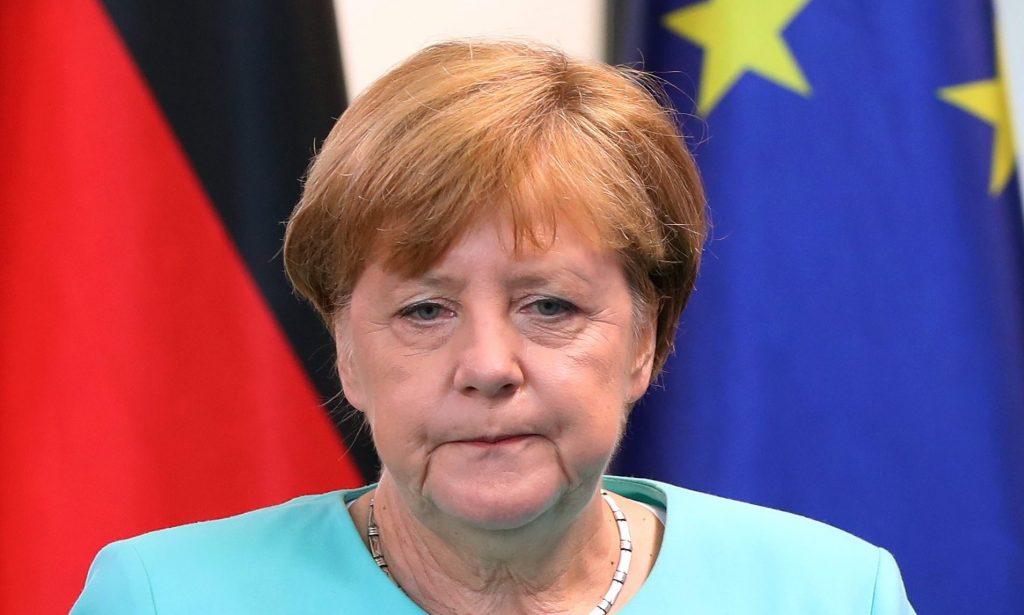Angela Merkel has delivered a staunch defence of her open-door policy towards refugees, insisting she feels no guilt over a series of violent attacks in Germany and was right to allow hundreds of thousands of migrants and refugees to arrive last summer.
“A rejection of the humanitarian stance we took could have led to even worse consequences,” the German chancellor said, adding that the assailants “wanted to undermine our sense of community, our openness and our willingness to help people in need. We firmly reject this.”
Repeating her wir schaffen das (we can manage it) mantra delivered last summer at the peak of the refugee crisis, Merkel said: “I didn’t say it would be easy. I said back then, and I’ll say it again, that we can manage our historic task – and this is a historic test in times of globalisation – just as we’ve managed so much already, we can manage it.”
“Germany is a strong country,” she added.
Within the space of a week, Germany has been rocked by an axe attack on a train, a mass shooting in Munich that left nine dead, a machete attack in which a pregnant woman was killed and a suicide bomb in Ansbach.
Three of the attacks were carried out by refugees, and two of them – the axe attack in Würzburg in which four people were injured, and the suicide bombing in Ansbach – are believed to have an extremist motive.
The teenager who carried out the Munich shooting, meanwhile, was a German-Iranian who prided himself on sharing a birthday with Adolf Hitler and appeared to have targeted foreigners.
Thursday’s press conference, which was brought forward by a month so Merkel could confront critics who have accused her of being too silent on the security threats facing Germany, was dominated by the attacks, which she called “shocking, oppressive and depressing”.
She said the attacks carried out by refugees who had “sought protection in Germany – or at least made out that they sought protection” were an “affront to the country that took them in, and an affront to all those who have volunteered to help them, as well as to the many law-abiding refugees”.

Photograph: Christof Stache/AFP/Getty Images
She said it was irrelevant whether the refugee attackers “had come to Germany before or after 4 September” a reference to her historic decision on that night in 2015 to open the German border to more than 10,000 refugees who were stranded in Hungary. In the following weeks tens of thousands arrived in Germany.
While insisting Germany would remain open to those in need of asylum, the chancellor acknowledged that Islamic State had sought to take advantage of the refugee influx.
Isis “used the refugee movement to smuggle terrorist forces [into Europe], as we’ve seen in France”, Merkel told the annual press conference. “That we should check all the ways [they use] has been clear for a long time, which is why internal and external security can no longer be distinguished from each other. We unfortunately have to accept that many Islamist fighters from Europe have gone to Syria.”
Appearing resolute and unruffled by the events of recent days, Merkel, who had interrupted a summer walking holiday in South Tirol to attend the press conference, insisted authorities were carrying out detailed analysis of the attacks, and would announce concrete measures that would be taken as a result of them.
She said she recognised how fearful people were about their personal safety. “We’re doing everything humanly possible to ensure security in Germany,” she said, acknowledging the “huge degree of insecurity people feel as a result of the recent events, that people are scared”. But, she said, “fear cannot be a counsel for political action”.
She also outlined a nine-point plan to increase security in Germany, which would include: an office for information technology that would concentrate on decoding internet communications between would-be attackers and terror groups; an increase in personnel at Germany’s intelligence agencies; a national register to monitor people entering and leaving the country; a lower threshold for deporting asylum seekers who break the law; regular joint exercises with the police and military to practice measures necessary in case of a terror attack; and an “early-warning system” to flag up radicalisation among refugees.
Following the Ansbach suicide attack perpetrated by a 27-year-old Syrian, political leaders in Bavaria declared that “Islamic terrorism has finally arrived in Germany.”
On Thursday Merkel rebuffed such rhetoric. “I think it arrived some time ago already,” she said, citing previous recent attacks on US soldiers at Frankfurt airport and an attack on a policeman in Hanover, both of which are believed to have had Islamic extremist motives.
“We are facing a huge test – that applies to Germany as well as to Europe,” she said, making repeated reference to the recent attacks in France, as well as incidents of deadly violence in Belgium, Turkey and the US state of Florida.
“Taboos of civilisation are being broken,” she said. “These acts happened in places where any of us could have been.”
She said it was the goal of terrorists to “undermine the way in which we live our lives. They sow hate and fear between cultures and they sow hate and fear between religions.”
Asked how she coped with the onslaught of global challenges that have only risen in weight and scope since she took office 11 years ago, Merkel said: “I do sometimes enjoy being able to go to bed at night – put it this way, I am not under-stretched”.

